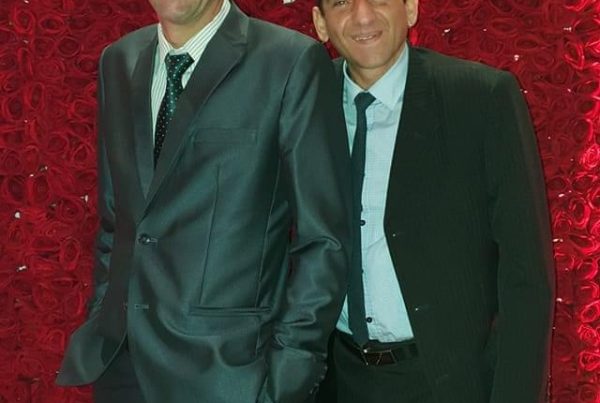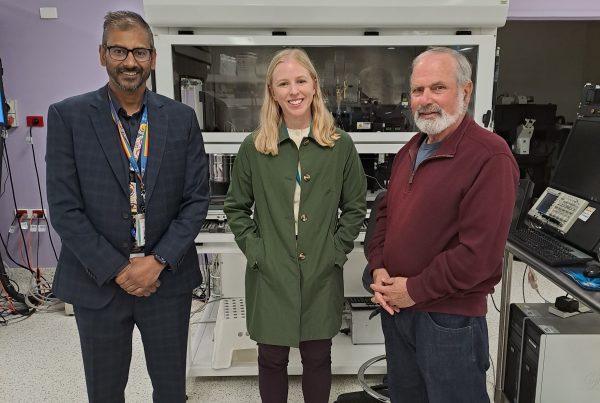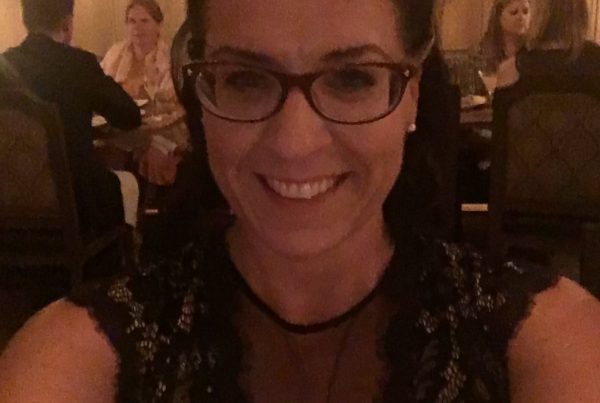Podcast: Play in new window | Download
Subscribe: Apple Podcasts | RSS
Archie on work and CF
In this episode of the CFStrong podcast, we speak with Archie, a former teacher, now marriage celebrant and musician, about all things work. We chat how Archie navigates work and CF including discussing CF at work. And Archie shares his advice for managing work and CF.

Transcript
Voiceover: Welcome to the CF Strong Podcast. CF Strong covers the successes and challenges faced by those living with cystic fibrosis. You’ll hear first-person stories, conversations with health professionals, friends and partners. Just a heads up, guests may share their personal views about treatments and health management, but please remember, this is not medical advice and you should always follow the advice of your clinic team regarding your health.
Sam: Hello and welcome to the CF Strong Podcast. I am Sam, and today we have Archie. Hi, Archie, do you mind just telling us about yourself?
Archie: Yes, thanks for having me, Sam. My name’s Archie. I have cystic fibrosis myself. I have the double Delta 508 gene mutation. I’m 29 years old. I’ll be 30 in a couple of weeks. I do a couple of different things. I’m a marriage celebrant, I’m a professional musician, I play the saxophone and I also work in dispute resolution at the telecommunications Ombudsman. I’ve got a couple of different hats.
Sam: That’s quite a good resume you have there. One, the first thing that kind of stands out to me there is you said you’re a saxophone player. I can imagine having to be a musician in regards to like instrument such as saxophone. It’s quite useful to play the instrument and also use that as a bit of physio as well for your chest and your lungs. Have you found that that’s been a useful tool in your physio?
Archie: Yes, absolutely. The whole reason I began, actually, I did my degree. I did a classical undergrad out at Monash on the clarinet. I first started on the clarinet and I actually did my degree. The whole reason why I started when I was so, so young, I think I was about six. The whole reason I started was for that very, that reason of the physiotherapy. It’s a technique called resistance breathing, basically just strengthens the lungs and helps with all the clearance of the airways. That was the whole reason, and I guess it just grew into a bit of a love and a passion and now I can’t seem to get away from it.
Sam: Excellent. That sounds like a real passion. Does that kind of mix together with your work? You said you’re a marriage celebrant. Do you often perform as well or are you mainly just the is it the host of say the wedding reception? Is that kind of the main jig?
Archie: Yes, so marriage celebrancy is basically the idea is that I am the guy who marries whoever is terribly in love. I legally bind these people together for life. I’ve kind of started that it was actually as a result of Covid, it was a bit of a catalyst for that change away from what I was doing previously. I was I’ve always been a professional musician and I just figured I wanted to add another string to that bow. I guess if you, if I’m to use another terrible music analogy, I wanted to add that extra skill.
I figured I can actually do the wedding ceremony itself as well as stick around later for the reception or the wedding party and continue as kind of the entertainment playing the saxophone alongside whichever DJ or other band they decide to get on for their party as well.
Sam: Okay. That sounds like a pretty good jig. I’m guessing you also have to be, I guess, an entertainer and also a pretty confident speaker. Do you ever find that you are anxious before doing those kind of things? Especially with like, in regards to cystic fibrosis, like sometimes you control the occasional coughing fit or things like that. Does any of that kind of play into your role?
Archie: Certainly before every performance it’s natural to expect a little bit of, I guess nerves are a natural part of any performance is what I’m trying to say it’s one of the best tips I ever got was to reframe nerves as excitement because it’s essentially the same physiological response. Now I just get excited for these things. In terms of how it links back to Cystic Fibrosis not so much the nerves on the day of the performance. If I’m well enough to get there and actually be performing and the CF hasn’t inhibited me too much leading into the performance, I’ve actually made it to the performance, then I’m not too worried.
I’m, I guess I’m going through those kind of normal performance processes. The CF is a bit more of a preparatory thing. It’s okay, what am I doing with my own routine and regiment to make sure that I’m best prepared physically and I guess also emotionally, mentally and everything as well. I think of the CF side of things more as a prep role than on the actual performance day because I like to, I guess stay focused on the actual performance when I’m there.
Sam: It’s a part of your I guess your routine leading up to the big days is just to make sure your CF is in order, you’re comfortable with where you are at and it doesn’t really carry over into the actual day. Okay?
Archie: Yes.
Sam: Your job before this role, what was that you said you were doing?
Archie: Leading up to Covid, I was actually a primary school in high school music and performing arts classroom teacher. I was teaching in various schools for about five years leading up to Covid all age groups, all kind of different contexts as well. Mainly the sort of primary school and high school-aged classroom music, which was it was a challenge. It was really a challenge, hence the change.
Sam: What were the main challenges then? I can imagine it’s could possibly have to do with say just the troubled troubling students at times because I can imagine high school can be a hard area to work in, or what were the main challenges you faced in that role?
Archie: You’d think that it was the students actually, once you figure out basic kind of classroom management techniques the students aren’t rarely ever the most challenging issue. It’s more, some of the issues I had with teaching were more industry and cultural-based challenges. For example, music being comparatively marginalized subject area compared to something like science or English or even Maths.
By virtue of being, I guess a, “Less important” quote-unquote subject area it’s often hard to get the same respect and emphasis in things like resourcing and time tabling as what those other subjects do. That’s just one of the many gripes I had about teaching. I also found that the effort-to-reward ratio with teaching just didn’t really match up in terms of the effort, time, hours, blood, sweat, and tears that I was putting into things such as lesson preparation, marking, report writing, meetings with other parents, meetings with other teachers.
All of the extracurricular things that were outside of the classroom I just found that it wasn’t adding to my overall experience in a positive way. Kind of contrary to what you would typically think that the high school students were actually sometimes the most redeeming factor of it because they reminded you that, well, they’re the reason why you were there to teach. Whereas a lot of the extraneous kind of things and bureaucratic type of things that you were required to do really weighed me down and hence I changed.
Sam: I can imagine why that would be hard. Definitely. From a point of view from say your cystic fibrosis, I can also imagine that kind of a hard work environment could also impact your health because maybe you weren’t exercising as much. That being said, how did you actually manage your health in all your work roles? Your school role and also now you’re marriage celebrate role. How do you, how have you managed your CF?
Archie: I mean the management has had to be pretty flexible over the years, as you say, with particular, so talking about teaching first teaching was really hard because it’s such a vocational occupation that you have to really give your complete self to it. Whereas people with CF know and empathize with the fact that we need to be a bit selfish on occasions and we need to excuse ourselves from some work requirements for the sake of making sure that we do our physio or we meet our health regimen requirements.
It was really hard things like making sure that I had enough time in my day to exercise where I needed to or to making sure that I had enough time at lunchtime to actually sit down and get a full meal so that I had enough fuel to get through the day. Whereas I know a lot of teachers sitting at their desks, eating their lunch while they mark student papers and things like that. That was, certainly a real challenge.
Now with my celebrancy and kind of musician role, it’s a bit different because I guess it’s more flexible. I can set it’s my own business firstly, I run my own business and take my own bookings for those services and your typical kind of booking or your wedding ceremony is only really around about 40 minutes long. I can manage that pretty easily and usually at a wedding, if I’m sticking around and playing the saxophone, I’m often getting fed too, which is quite nice. The sit down wedding meal.
It’s a little different because they’re often later evenings they finish a little later as well. I do have to make sure that, okay, all right I don’t have something straight up first thing in the next morning because I really do require that physical recuperation because I do find myself quite spent physically and socially I do need that kind of period to really bounce back. That’s just come with trial and error and a bit of experience.
Sam: The change from careers, obviously from a career that you enjoy at some level, but also found challenges in to now doing something that seems like you are a bit more passionate about and that you love a bit more is there a big difference in how that makes you feel both physically and emotionally and does that tie in with your Cystic Fibrosis as well?
Archie: Definitely. I mentioned the fact that the playing aspect, the playing the saxophone is a workout in itself. It’s very aerobic as an activity. As a result of my career change, I’m actually playing the saxophone more. I’m actually integrating more exercise and more aerobic expansion and activity into my work. That as a result of, by virtue of playing the saxophone, you get endorphin release because of the fact that you’re making music and you’re being physically active.
That’s already a plus. Plus I’m making money off it plus it’s something I’ve, I’m good at. Whereas previously with teaching, I was having to sacrifice a lot of that time to make sure that I was meeting my teaching requirements. I’m really happy with the transition so far and I’ve it’s been a challenge, but and a real learning curve but it’s been great because I mean, with any business you can, I guess set your own prices and have a little bit more control over how you do things.
Whereas I’ve found that sometimes teaching was a bit rigid by having to meet curricular requirements or just be determined by what the bureaucratic requirements were. That was a bit of a challenge because it’s now so open. The whole thing’s entirely up to me and, but that’s really exciting. It’s what I love most about it, actually.
Sam: You mentioned before that it was through Covid that you had this kind of change in career. What was the other main inspirations into going into this field because it’s quite a unique one and I feel like a lot of people won’t know too much about it. What were the biggest inspirations to get into this area?
Archie: I mean, my partner says that I’m the most soft romantic type that she’s ever come across. I certainly almost cliched, I do love, love and I do confess, I had been to a couple of weddings kind of prior to Covid where I was sitting as a guest during the ceremony thinking to myself, I could do that, I could do that, I could give that a red hot crack and so nice. I always thought it’d be a pretty cool kind of side hustle to have.
I’ve done a few now that it’s really grown into a love and I’m really looking forward to making it the main source of income. I still have a day job doing this kind of dispute resolution stuff, which is an office job and that’s going to tide me over until the business really takes off and I get enough bookings to kind of rely on that, which is exciting. I was already pretty disenfranchised with teaching, kind of leading into Covid, but it really did provide the perfect catalyst for that change.
Sam: Excellent. It’s always great to hear stories about someone chasing their passions and going into an industry to get paid for their passion, which is I think is a a great best-of-both-worlds kind of scenario. Just to dabble back into the CF side of things what are the biggest challenges you find in regards to balancing now having your job and also your passion job, which is after hours? How do you find the balance to also fit in your Cystic Fibrosis treatment and exercise and physio?
Archie: It is a challenge. As I mentioned, often performance is going late into the evening. I have a personal trainer with a gym just across the road from where I live and the only time I can really get bookings with him is in the early mornings. That requires a lot of communication just with trying to balance making sure that I’m meeting those kind of physiological requirements that I know I need to do to keep my airways clear and things like that. It is a real challenge.
It was also a challenge, if I’m being honest, it was also a real challenge initially financially because teaching is a solid salary. Particularly, for young teachers coming straight out of uni. It’s a really good solid regular income whereas now it’s a little bit more few and far between and it’s a seasonal is what I should say, it’s more seasonal. Whereas we’re coming into the colder months. Obviously weddings aren’t happening as commonly less bookings.
I’m having to be a bit more mindful of whether I continue the gym membership or whether I can even go out for a run by myself because of the cold air and how it affects my lungs. Just little things like that definitely play into your mind. It’s, but at the same time, I got to give a shout outs to CF Community Care for their assistance there as well, because they’re always fantastic as a resource for getting things like the fitness grants and just general pointing in the right directions regarding all things that resources.
Sam: It’s a hard one. It’s hard trying to do the things you love but also try to balance out the things you have to do which unfortunately is something everyone with CF can relate to because I also have CF as well, so I relate to it very much.
Archie: Oh, I didn’t even know. Sorry, Sam. I didn’t hear that.
Sam: Oh, sorry. I should have said that before we started talking. I also have Cystic Fibrosis, so and as you said before, I like doing the advocacy stuff, so that’s kind of why I’m here doing this as well.
Archie: Cool.
Sam: It is very hard to find that balance, which is doing the things you love, but also having to do the things you have to do and it’s also like a circle, if you don’t do the things you have to do, you can’t do the things you love, but it’s just it gets very hard to balance. I commend you for going out and maybe putting behind, beside a salary to then chase something you’re passionate about. I commend you for that.
Archie: Thanks, man.
Sam: Going on from that, do you have any advice? Do you have any advice to say any listeners who are thinking about chasing their passions? What would you say to them?
Archie: I think by virtue of having Cystic Fibrosis, we’re all acutely aware of our own mortality. Not to get too dark and heavy straight away, but we’re all very aware that this is the one shot we’ve got. Why are we dawling wasting time doing stuff we don’t actually believe in or want to do. I’ve just really found that as a pretty big motivator if there ever was one you really got to give it a red hot crack. Do as much research, ask as many questions as you possibly can.
Surround yourself with good people. Be honest with both yourself and the people around you, with what you want to do and how you want to go about it. Just be willing to learn and accept the fact that it’s going to take a while to get where you need to be or where you want to be. I guess also being comfortable with the fact that you’re going to suck at it for a bit until you do rock at it because no one gets it good at anything overnight.
Just dive right in, ask plenty of questions. You’ve got legends like yourself, you’ve got, always got me to ask this questions. We’ve all made the various mistakes in the past as well. Just ask questions, I would say.
Sam: Excellent. Well, it’s been an absolutely pleasure having you on the podcast. This is unfortunately about all the time we have for it. Thank you again for coming on, and I hope the listeners have got something out of this. Thanks for joining us and hope you talk to you soon.
Archie: Thanks so much for having me, Sam. I hope to have to ask you some questions next time.
Voiceover: Thanks for listening to this episode of the CF Strong Podcast. Make sure you subscribe on your favorite podcast listening platform so you don’t miss the next episode. If you enjoyed this podcast, we’d really appreciate if you could leave as a review. It helps other people find safe, strong, or share us with your friends. Also, a quick reminder that the views expressed in the CF Strong Podcast may not be reflective of Cystic Fibrosis community Care’s viewpoints.
The podcasts are designed to share information and provide insight into the lives of those living with cystic fibrosis around Australia. This podcast was made possible thanks to support provided by the Australian Government and was produced by CF Community Care and CF Western Australia. Our theme music is Spark of Inspiration by Shane Ivers from Silverman Sound. Thanks for listening, and we’ll talk to you next time.
This podcast was published in December 2022. If you would like to share your story, please contact us at admin@cfcc.org.au. We’d love to hear from you and so would our listeners.




